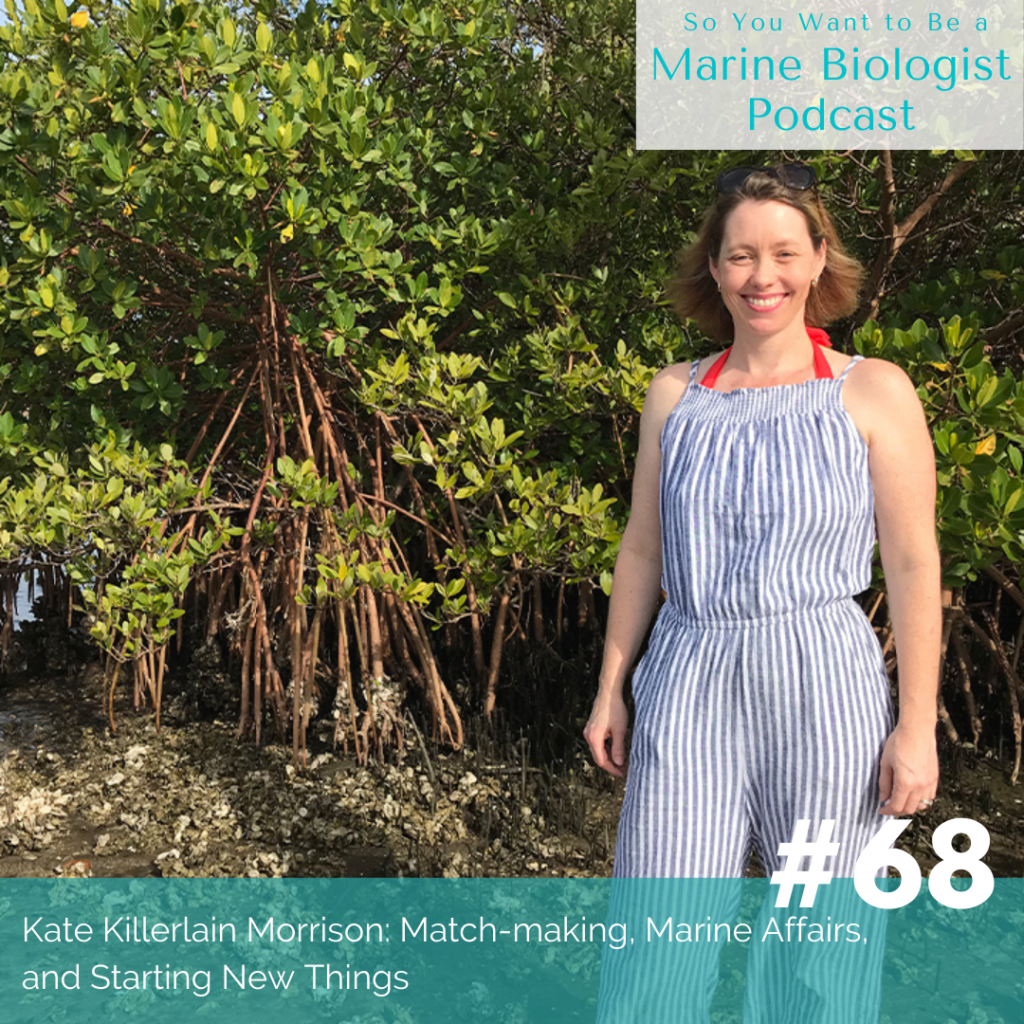Kate Morrison is the strategic partnership director for the Ocean Foundation. Her job? Match-making. Kate is the magician that connects science and conservation efforts to the sources of funding with similar intentions and goals. In today’s episode, we chat about Kate’s winding path, starting as a marine bio major and the shift from science to ultimately graduating with a masters in marine affairs. Kate has been on the ground floor of several ocean policy initiatives on the eastern seaboard of the states, and she shares her experiences and lessons learned. She has a great outlook on adapting to and willfully creating change in your own life.
Connect with Kate: Website|LinkedIn
Quick Links
Honeymoon State Park
Eckerd College
University of Washington
IUU Fishing
Peace Corps
Cape Wind
First Massachusetts Ocean Management Plan
The Sacred Cod
Stellwagen Bank National Marine Sanctuary
Marine Program TNC Massachusetts
Sargasso Sea Commission
The Shinnecock Nation
Show Notes
00:15 What the Ocean Foundation does and how it influences ocean conservation worldwide. Kate explains the plastic initiative that the Ocean Foundation is involved with re-engineering and re-designing plastic to make it more recyclable.
3:30 As a community foundation, the Ocean Foundation developed programs to not be redundant with the work of other organizations, and to create programs that provide unique value.
4:30 Changes to the local natural environment and development on Florida’s west coast inspired Kate to pursue a degree in the marine and environmental sciences. She realized that becoming a marine biologist- doing the actual science- wasn’t in the cards for her, and made a pivot.
9:30 Kate spent time in Africa researching the artisanal fishing community- those that go out on day trips only- and what influences them. Traveling through five countries, she learned that poverty, corruption, and access to power heavily influence the industry.
13:00 Moving to Washington, DC Kate got a “pay the bills” job in order to intern for free and gain experience. Her internship was helping to shape policy around offshore wind power.
17:15 “I get impatient and like to start new things.” This is how Kate has made the leap from different projects and organizations. From being on the ground floor of the Nature Conservancy’s initial maritime endeavor to getting involved with the Sargasso Sea.
24:30 There are 29 government agencies that touch or utilise the ocean in some capacity, including the Navy, Coast Guard, and Tribal Governments. Kate headed up an effort to get these agencies and stakeholders to communicate with each other in the Mid-Atlantic Region.
26:45 Including traditional ecological knowledge: tribes look multiple generations into the future when they think about managing their resources, so that seven (or more) generations into the future.
29:35 Kate’s favorite part about her job? Getting the resources together in a timely fashion to be able to do the work that hardworking on the ground really want to do. Some of the people she works with have familial stipulations with money when they come into a certain age.
33:20 What does the ocean mean to you?
34:15 What would you use a blank check for? Start at Key West in a retro airstream and buy all the coastal property from Key West to Canada, restore it to its natural state and make it available to the public.
35:50 Favorite Field Story or stories to tell? During college, Kate helped with the marine mammal stranding project and she had a special moment with a stranded whale.
37:45 Conservation ask: the opposite. Take risks. There’s always a new idea and a new experience. There’s no “five year plans.”

1 thought on “Kate Killerlain Morrison: Match-making, Marine Affairs, and Starting New Things (#68)”
Pingback: Increasing Awareness to Drive Change - Our Work in Ocean Literacy